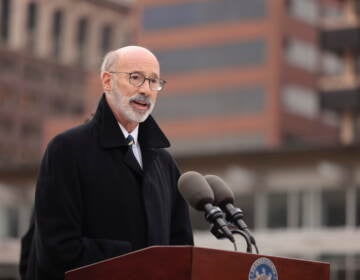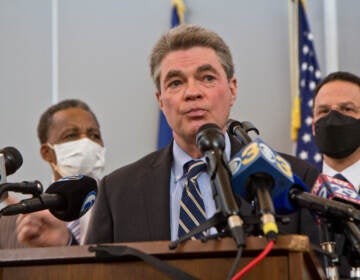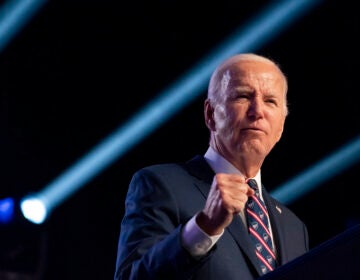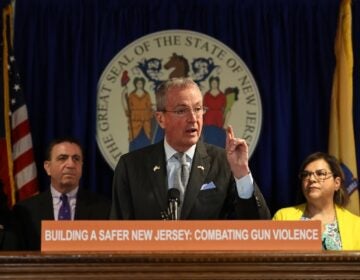Upper Darby mayor wants to use $1M of ARPA funds for gun violence prevention
A public health approach is being proposed with part of the $20 million-plus the township has received in American Rescue Plan Act funding.
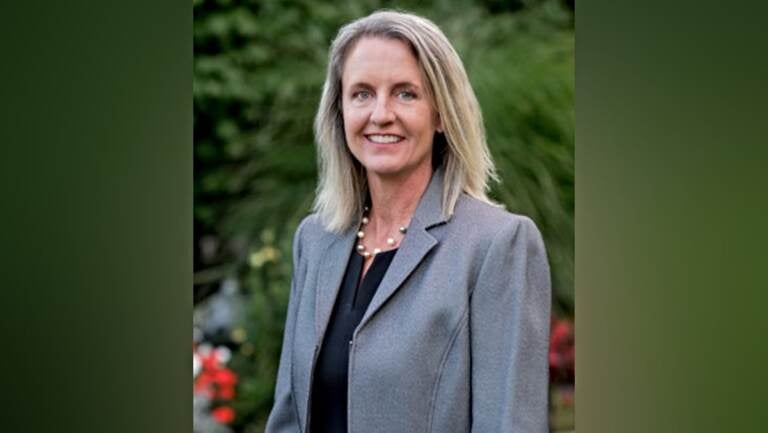
Upper Darby Township Mayor Barbarann Keffer. (Barbarann Keffer)
Upper Darby Township received more than $20 million in its first allotment of American Rescue Plan Act funding — part of the $1.9 billion COVID-19 stimulus package President Joe Biden signed last March. Now, Mayor Barbarann Keffer has presented a proposal for how to spend that money.
The proposal, which has been discussed already at three public meetings, includes infrastructure improvements, employee bonuses for municipal workers, increased funding for police and fire services, parks and open space projects, small business grants — and $1 million for a gun violence prevention initiative.
Like Philadelphia, Upper Darby officials said the township has seen a rise in gun violence during the pandemic. In 2021, 15 people were struck by gunfire.
Township officials hope the money can be used to seek a new approach to the problem.
“It’s a public health crisis. This ARPA money is really a once-in-a lifetime opportunity to address different issues in the township kind of all at once. It has to be spent in a certain amount of time, and we’re just trying to kind of gear up to be able to use it,” Keffer said.
Deputy Mayor Vincent Rongione believes defining gun violence as a public health issue in Upper Darby allows some of the federal relief money to be used for that purpose.
“A public health approach is categorized by a data-driven approach — what has worked before and what will work again — and I think what the data has shown is that young people who experience trauma and are left without treatment or support oftentimes end up being the people who perpetrate gun violence,” Rongione said.
He hopes that the data informs the need for programs, such as mental health support groups and GED tutoring.
Rongione also wants some of the money to bolster police and community relations via an existing youth program, Teens and Police Service Academy, also known as TAPS. In this program, officers interact with students in the classroom. Modeled after the national program of the same name, TAPS promises to be the “next phase of community policing.”
Locally, the program started off as a pilot at Monsignor Bonner & Archbishop Prendergast Catholic High School in Drexel Hill. Upper Darby Police Department Superintendent Timothy Bernhardt said TAPS received “rave reviews.”
Ideally, the program works as a way for officers and students to see and listen through each other’s eyes and ears, Bernhardt said.
“It’s just that overall concept of how can we be ingrained in the community with the youth and be part of the community, and not just respond when there’s a 911 call and there’s a bad situation. What we want to do, and hope this allows, is to when, God forbid, there is that 911 or when there is that interaction with the police, it’s like, ‘Hey, there’s Officer Bernhardt. Hey, there’s Officer So-and-So,’” Bernhardt said.
Upper Darby is seeing an uptick in gun violence and the trauma that comes with it, Bernhardt said. He welcomed a newer data-driven approach and a focus on education to replace the older ways of doing things.
“One of the things that I’m looking forward to with our PAL [Police Athletic League] program is — and this isn’t a knock on basketball, or football, or soccer — but I want it to be more than that. I want it to be the video games, or I want to help them get their GED or help them to get their driver’s license, or to help them get a job after school or put them in some type of organization or group that they have interest in and lead them towards that,” Bernhardt said.
In terms of newer ideas, Upper Darby might look elsewhere for solutions to replicate. One example that officials are keeping their eyes on is Advance Peace. Rongione believes the program, in which formerly incarcerated people provide counseling and mentorship to at-risk individuals, has seen success in other places.
Rongione wants to meet people where they are to break the cycle of violence.
“There’s just a certain amount of credibility that comes from someone in that position. So a program like that is the type of innovative strategy that we want to have money set aside for,” he said.
Before Upper Darby decides exactly how the gun violence prevention money would be allocated, Keffer and Rongione stressed, it’s important to conduct risk and needs assessments. These would be handled by public health experts who have a background in studying violence. The goal, Rongione said, would be to look at the systemic factors in violence in the township and understand who are the at-risk populations.
“It’s more than any one individual going down the wrong path or making a bad choice. It’s about how do we bring in people to help us understand the root causes and change the community conditions that give rise to violent incidents?” Rongione said.
On top of Mayor Keffer’s proposal to use $1 million in federal funding to address gun violence, the plan also includes an additional $750,000 for nonprofits dealing with mental health issues and homelessness.
Since this is the first of two ARPA allotments, Keffer said she hopes the Township Council will approve her proposal.
“We look forward to continuing the conversation with council, with the community, and see what else we can be doing with the next $20 million,” Keffer said.
The entire plan will go up for vote at the council’s meeting on Feb. 2.

Get daily updates from WHYY News!
WHYY is your source for fact-based, in-depth journalism and information. As a nonprofit organization, we rely on financial support from readers like you. Please give today.



